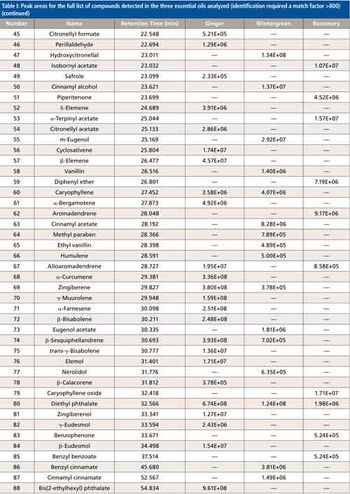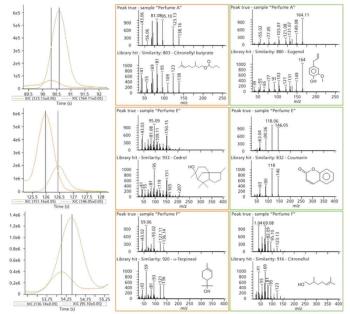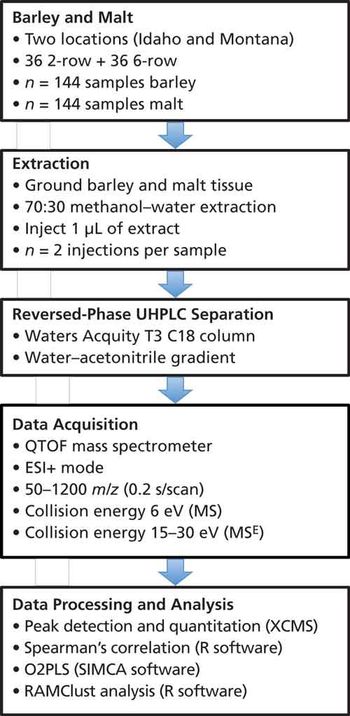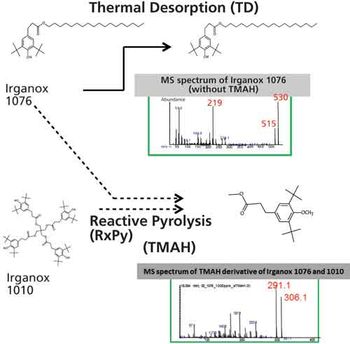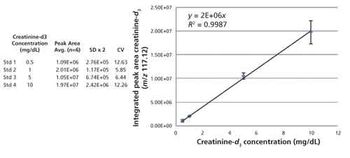
Special Issues
Chronic kidney disease or kidney complication resulting from another systematic disorder can impact the organ’s blood filtering capability resulting in the passage of blood-born proteins through the kidneys and into urine. Clinical analyses for blood proteins in urine are performed to assess proper kidney function or to monitor a diagnosed disorder. Serum albumin is a common target in these clinical assays and detection of elevated SA levels in urine is termed Albuminuria. Because of normal variability in urine content and volume multiple measurements are often made in comparison to creatitine levels within the same urine sample and reported as a ratio (ACR). Demonstrated here is a novel means for quantifying albumin and creatinine directly from the same urine sample using MALDI-TOF mass spectrometry. Standard addition of albumin and deuterated creatinine (d3) into control urine produced a linear and quantitative response (R2 = 0.99 and 0.98) and is used to quantify both analytes across their clinically relevant ranges. This MS-based method represents a simple, fast, attractive alternative to currently clinical methods.

